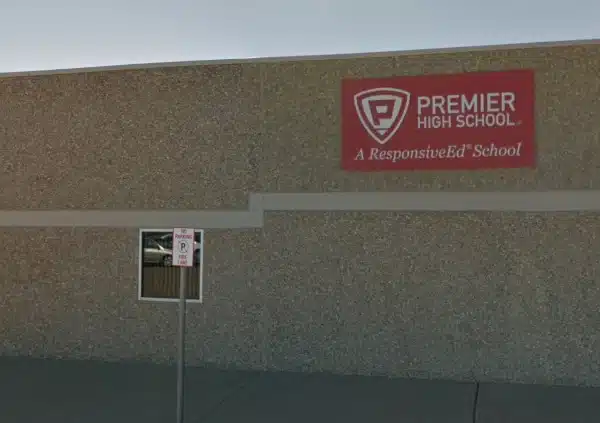
According to Everything Lubbock, Sally Charles, a former teacher at Premier High School located at 2002 W Loop 289 Acc Rd Ste. 121, Lubbock, TX 79407, has entered a plea agreement after being accused of engaging in an improper relationship with a student. The 46-year-old teacher reached the plea agreement on Friday, June 30, 2023, resulting in a sentence of seven years deferred adjudication.
Under deferred adjudication, Charles's case could potentially be dismissed if she successfully completes her probation. However, she will be closely monitored and must abide by strict conditions during this period. Failure to comply with the terms of her probation could result in severe consequences.
The investigation began in November 2019 when an official at Premier High School reported suspicious behavior by Charles. Concerns arose after it was discovered that she had been in contact with students via social media, and the nature of the messages was described as "very forward."
Multiple students from Charles's class bravely came forward, expressing their discomfort and detailing their experiences with the teacher. Court records state that Charles's messages to a particular student were particularly troubling, with a clear imbalance of power and an evident sense of pressure on the victim. Further investigation uncovered evidence of sexual contact between the two parties, confirming the principal's suspicions of a sexual relationship.
Charles was subsequently arrested in February 2020 and later posted bail. After a lengthy legal process, she ultimately accepted the plea agreement, which includes the surrendering of her teaching license. While she will not be required to register as a sex offender, the revocation of her teaching license will effectively prevent her from working in an educational capacity.
The sentencing decision has stirred mixed reactions within the community. Some argue that the punishment is too lenient given the gravity of the offense and the vulnerability of the victim. Others contend that the deferred adjudication approach provides an opportunity for Charles to reform herself and make amends.
As the legal proceedings conclude, concerns regarding student safety and the prevention of similar incidents have come to the forefront. Educational authorities and local law enforcement agencies are likely to intensify their efforts to strengthen safeguards and create a secure environment for students across Lubbock.

Sexual abuse in educational settings can have devastating consequences for survivors, and it is imperative that they have avenues to seek justice. In this interview, we will explore how civil lawsuits can serve as a path to justice, holding both abusers and those who enable the abuse accountable. Let's dive into the interview with Texas sexual assault attorney Anjali Nigam, Esq., as we discuss how high school sex abuse survivors can seek justice through civil lawsuits.
Darla Medina (DM): Thank you for joining us, Anjali.
Anjali Nigam (AN): Thank you for having me, Darla. It's an important topic, and I'm glad to be here to shed light on seeking justice for high school sex abuse survivors.
DM: Indeed, Anjali. Many survivors face immense challenges when it comes to seeking justice. Can you explain how civil lawsuits can be a path towards justice for these survivors?
AN: Absolutely, Darla. Civil lawsuits can play a significant role in helping high school sex abuse survivors seek justice. These lawsuits allow survivors to hold accountable not only the abusers themselves but also the institutions or individuals who enabled the abuse or failed to take appropriate action to prevent it. By pursuing civil litigation, survivors have an opportunity to expose the wrongdoing, obtain compensation, and effect positive change.
DM: That's crucial, Anjali. Can you walk us through the process of filing a civil lawsuit for high school sex abuse?
AN: Certainly, Darla. The process begins with the survivor reaching out to an experienced sexual abuse attorney who specializes in these cases. The attorney will provide a confidential consultation to understand the survivor's unique circumstances, assess the viability of the case, and determine the appropriate legal strategy. From there, the attorney will gather evidence, interview witnesses, and build a strong case to support the survivor's claims.
DM: What kind of compensation can survivors seek through civil lawsuits?
AN: Survivors may be eligible to seek various forms of compensation through civil lawsuits. This can include economic damages, such as medical expenses, therapy costs, and future lost earnings. Additionally, non-economic damages can be sought to address the survivor's pain and suffering, emotional distress, and loss of enjoyment of life. Each case is unique, and the compensation sought will depend on the specific circumstances of the survivor's experience.
DM: Are there any potential challenges that survivors may encounter during the civil lawsuit process?
AN: Yes, there can be challenges along the way. Statutes of limitations vary by state, which can impact the timeframe within which a survivor can file a lawsuit. It's crucial for survivors to consult with an attorney as soon as possible to understand their legal rights and options. Additionally, navigating complex legal procedures, gathering evidence, and going up against powerful institutions can be daunting. However, with a skilled attorney by their side, survivors can overcome these challenges and seek the justice they deserve.
DM: Thank you for providing that insight, Anjali. Lastly, what advice would you give to high school sex abuse survivors who are considering pursuing a civil lawsuit?
AN: My advice to survivors would be to prioritize their well-being and safety while seeking justice. Reach out to a compassionate and experienced sexual abuse attorney who can guide you through the legal process. Remember, you are not alone, and there is support available to help you navigate the challenges ahead. By seeking accountability through a civil lawsuit, survivors can not only find closure for themselves but also make a positive impact on the prevention of future abuse.
DM: Thank you, Anjali, for sharing your knowledge and expertise on this important topic. We appreciate your time and dedication to helping survivors seek justice.
AN: Thank you, Darla. It's been my pleasure to be here and shed light on this crucial issue. Remember, justice is possible, and survivors have the power to make a difference.
 info@legalherald.com
info@legalherald.com